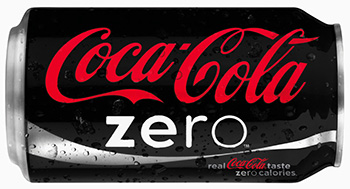In February, I reported on the battle between Coca-Cola and some of its soft drink rivals over trademark rights to the word “ZERO” in an article entitled, “How many trademarks is Coca-Cola hoping to register with the USPTO this year? ZERO.” Now, the Trademark Trial and Appeal Board (the “TTAB”) has issued a final ruling on the subject: The Coca-Cola Company can proceed with the federal registration of the “ZERO” trademark for use in relation to soft drinks with no calories, but it cannot prevent competitors from using the word “zero” in their own trademarks. Huh?
What is the TTAB?
In understanding the ruling, it is important to understand the limited role the TTAB plays in deciding issues related to U.S. trademarks.
The TTAB is an administrative board within the U.S. Patent and Trademark Office (the “PTO”) that is responsible for making determinations regarding the registration of trademarks by the PTO. More specifically, the TTAB hears and decides adversary proceedings between parties involving pending trademark registrations when one party opposes the registration by the other party (also known as “opposition proceedings”). It also hears and decides what are known as “cancellation proceedings,” cases in which a party seeks the cancellation of an existing trademark registration held by another party.
Additionally, the TTAB handles interference and concurrent use proceedings as well as appeals of “final refusals” issued by PTO Trademark Examining Attorneys during the prosecution of trademark applications.
But, it also is important to understand what the TTAB does not do. For example, the TTAB does not make rulings on trademark ownership or trademark infringement (except as it may relate to registrations). Further, it does not make decisions about the monetary damages nor can it issue equitable relief such as injunctions. Issues such as these are left to the federal courts.
The TTAB Ruling on “ZERO”
Getting back to zero, Coca-Cola filed applications for several registrations of “ZERO” as a trademark related to its ‘no calorie’ soft drinks back in 2005, but Royal Crown Company, Inc. and Dr Pepper/Seven Up, Inc. filed oppositions to the registrations on several grounds. Likewise, Coca-Cola filed oppositions to Royal Crown’s competing registration applications for “PURE ZERO” and “DIET-RITE PURE ZERO.”
In its recent ruling, the TTAB dismissed 13 of Royal Crown’s oppositions, but sustained 4 of them subject to a mandatory disclaimer of the word “zero” by Coca-Cola within two months of the date of the ruling. The TTAB dismissed Coca-Cola’s oppositions because there was insufficient proof of prior use by Coca-Cola.
The Board considered arguments by Royal Crown that Coca-Cola’s registration applications established that the “ZERO” mark is generic for soft drinks, sports drinks and energy drinks that contain fewer than 5 calories, but found that the evidence offered failed to substantiate the argument. The Board also found that Coca-Cola failed to prove that its own use of “ZERO” had acquired distinctiveness sufficient to prove “secondary meaning.” Secondary meaning can arise where the use of an otherwise generic word or combination of words becomes so related to a product in consumers’ minds that it acquires distinctiveness worthy of trademark protection.
Effectively, the TTAB ruling means that, from the PTO’s standpoint, Coca-Cola may secure its registration for the “ZERO” trademarks, but it will not be able to prevent Royal Crown and others from obtaining registrations for similar trademarks incorporating the word “zero.”
Why It Matters. Within an industry, it is always important to know what competitors are up to, particularly if what they’re up to may have a direct impact on your company’s ability to market and sell its products. If a competitor applies to register a trademark that may affect your ability to use the same word or phrase as is used in the mark being registered, then you may need to file an opposition to the registration with the PTO. Failure to do so may result in the issuance of a federal trademark registration that could seriously impact the use of one or more of your own marks.

